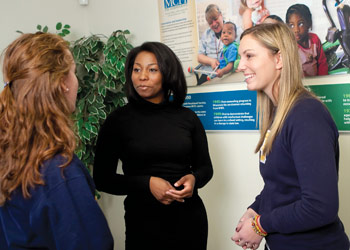The Center for Teaching and Learning- Service Learning Program recognizes that throughout the history of the United States and the world, community service and charity work have often led to problematic, ethnocentric, racist, oppressive, and unjust situations, where even good intentions had hurtful and harmful outcomes. Given this, our office commits to working through an anti-racist framework in our attempts to meet real community needs and work with our community to make it a better place for all.
It is our belief that as part of our Jesuit mission, we must share our gifts and talents to meet the world’s greatest hungers and needs. Service with others is an important aspect of our faith tradition, our own formation, and is the very fabric of a good and moral life. Further, Marquette University has a vested interest in the empowerment and success of our community. However, we must engage in a way that does not patronize the oppressed, but instead holds our neighbor up as our allies in the fight for a more just world.
We commit to:
Decolonizing community engagement work by including those that have been historically marginalized in decision making, program formation, teaching, training, and feedback. We seek to center and amplify the voices of those pushed to the margins.
Continually reviewing and revising taken for granted structures, policies, and procedures that may reinforce a colonialist or white supremist approach to service and engagement.
Providing the necessary preparation, training, and reflection to make sure service participants and leaders understand problematic power dynamics and blinding privilege. We will prepare our constituents to approach their work in the spirit of solidarity, co-learning, and partnership versus being experts, helpers, and saviors.
Preparing a student body, faculty, and a program staff that continually seeks to build their own cultural competency, cultural empathy, and understands that this is a life-long learning journey.
We stand in solidarity with people of different backgrounds and beliefs as our own, including differences in class, gender, sexuality, religion, ability, nation of origin, age, ethnicity, aboriginality, language, education, geographic location, and immigration status.
As Program leaders, we embrace a willingness to be disturbed and be open to critique. We will hold ourselves accountable as a team to reimagine and build a community of learning and service based in anti-racism, social justice, and liberation.
